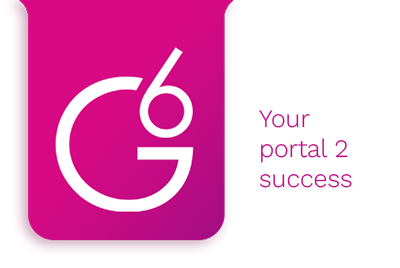Does your sales team have difficulty building strong, long-lasting customer relationships?
Don’t worry if this sounds like something you’re struggling with, as several small businesses experience the same thing every day!
Hi, my name is AJ! After selling my company for multiple seven figures, I created Small Business Bonfire to help growing entrepreneurs!
Building a business wasn’t easy. But one detail that took my company’s sales from just okay to booming was outside sales strategies!
So keep reading if you want to learn how outside sales can improve client relationships and help your team meet sales quotas!
Key Takeaways
Outside sales are when sales reps meet with potential or existing clients in person rather than virtually.
The benefits of outside sales include better customer relationships and a higher deal closure ratio.
Outside sales reps must find, qualify, and nurture leads (or prospective buyers).
Outside sales salary varies because most of their earnings come from commissions.
Outside sales, also called field sales, is a selling strategy where sales reps meet potential customers face to face.
Therefore, these employees typically spend considerable time traveling to meet prospects in various locations.
Outside sales reps meet with both new and existing customers and focus on the following things:
Building and strengthening customer relationships Closing deals Explaining features, benefits, etc., of the company’s products or services Ensuring prospective customers feel heard
Many sales professionals believe meeting with potential customers in person makes building genuine, strong relationships easier.
Where do outside sales reps meet their clients?
These in-person meetings can take place at numerous locations, including the following:
The client’s office ConferencesNetworking events Trade shows Other industry events
Outside sales representatives are vital for businesses because they’re responsible for building solid relationships and closing deals with important clients!
Another form of selling is through inside sales.
Inside sales professionals sell products and services through the following outlets:
Phone calls On the internet Video chats (Zoom, Skype, Google Meet, etc.)Emails
Basically, inside sales are when sales reps don’t go out to meet customers in person but talk to them from their offices or homes instead.
Using any of the previously listed methods, inside sales teams strive to do the same things as outside reps: connect with potential customers and close deals.
So, instead of traveling to different locations like outside sales reps, inside sales reps can do their job from one place.
This way, they can reach out to many people quickly and explain why their company’s products or services are awesome!
As you can see, there are advantages to both outside and inside sales processes.
Regarding inside sales, the primary benefit is that sales reps can meet with WAY more people in a day compared to outside agents because they don’t have to travel anywhere.
Inside sales vs outside sales; what’s the difference?
There are a few aspects that distinguish outside sales reps from inside ones, including the following things:
LocationMethods they use to communicate The number of deals they are assigned Cost of doing business
Let’s look at these differences closer!
Location
Outside sales reps are typically on the move!
Remember, these agents meet clients at their offices or industry events, traveling to each location to present their sales pitch.
These sales agents usually don’t have one set location unless they’re responsible for a specific sales territory!
In comparison, inside sales reps operate from a set location, such as an office or home.
Therefore, inside reps travel much less than outside agents!
Communication Method
Another difference between inside sales vs. outside ones is how the agents communicate.
For example, outside sales primarily involve face-to-face meetings, allowing in-person demonstrations and relationship building.
On the other hand, inside sales relies on digital and telecommunication methods, including the following outlets:
EmailsPhone calls Video conferences
As you can see, there are some instances where inside sales teams may sell to a client without ever seeing their face!
Whether agents meet with prospects in person or virtually, it’s crucial to have excellent communication skills!
When agents communicate clearly, they show buyers why YOUR company’s products or services are better than the competition!
The Volume of Deals
Perhaps the most significant distinguishing factor between inside sales vs. outside is the number of deals each agent can handle.
Typically, inside sales reps can manage a larger volume of deals due to their stationary environment.
Think about it; an inside sales representative doesn’t have to spend hours traveling just to meet with one client, saving them a lot of time!
In comparison, the travel requirements of outside sales result in fewer, but often more extensive and complex, deals.
Some outside sales team members may travel an hour to meet with a client.
Therefore, the deals are usually larger to compensate for the time an agent spends traveling!
Cost
Lastly, it’s crucial to consider cost when comparing inside sales vs. outside sales.
For instance, outside sales can be more expensive due to travel and accommodation costs.
These sales representatives rack up the following costs while closing deals on the road:
Airfare Gas/mileage Hotel/lodging Food
In contrast, inside sales generally incur lower costs as sales are conducted virtually, eliminating the need for travel!
Outside sales typically begin with identifying potential customers interested in the company’s product or service.
Next, the sales representative reaches out to these potential clients, often by phone or email, to arrange an in-person meeting.
The representative presents a sales pitch, explaining the following things during the meeting:
The benefits of the product or service The features of the product or serviceWays the product or service will solve the client’s pain pointsAnswers to any questions the client might have
If the customer shows interest, negotiations will commence to finalize the terms of the deal!
Finally, after all details are agreed upon, the sales representative works on closing the sale, solidifying the newly formed client relationship.
An outside sales rep, first and foremost, builds relationships with potential clients!
Meeting in person usually allows outside sales reps to connect with potential clients deeper than they could over the phone or via email.
On top of that, an outside sales team does the following things:
Identifies prospective customersReach out to prospects via email, phone, etc. Meet face-to-face to introduce clients to their company’s products or services.
During these in-person meetings, outside sales teams present a compelling sales pitch and answer customer queries.
Answering questions is crucial because it shows the sales rep cares about the prospect and understands what they’re selling!
After these discussions, if the customer is interested, the sales rep negotiates the terms of the deal.
Finally, they close the sale and continue nurturing the client relationship for potential future deals!
Many people think the sales process is over after an agent closes the deal.
However, post-sale nurturing is vital to the sales process because it builds long-term relationships, repeat buyers, and customer loyalty!
Outside sales come with several advantages.
However, the three primary benefits include the following things:
A better closing ratio Stronger customer relationships More motivation in sales reps
Here’s what you need to know about each of these advantages!
Outside sales often lead to a higher closing ratio because it offers a more personalized approach.
As a result, this allows for solid rapport building and effective handling of objections in real time.
Also, meeting clients face-to-face humanizes the sales process and provides an opportunity to understand better and address their concerns directly.
Addressing concerns directly can increase trust, making the prospects more likely to close the deal!
Lastly, a higher closing ratio is crucial because it signifies more successful sales, increasing revenue and contributing significantly to business growth.
Outside sales promotes more face-to-face interactions, leading to more meaningful and personal connections than remote touchpoints.
This close, personal interaction allows the sales rep to do the following things:
Better understanding of the customer’s needsProvide tailored solutionsFoster a strong, trusted relationship
Such relationships benefit individual sales and become a foundation for long-term loyalty and repeat business.
Further, better relationships give the clients a sense of importance and value, leading to higher satisfaction and a stronger bond with the company!
Lastly, an advantage of outside sales strategies is that it can boost sales rep motivation.
Unlike their inside sales counterparts, outside sales reps can escape the confines of an office, meet exciting people, and explore new places.
As you can imagine, these things can be exhilarating and highly motivating.
Also, face-to-face interaction generates immediate feedback, allowing sales reps to adjust their strategies on the spot, giving them a sense of control and influence over the outcome.
Further, the direct correlation between their effort and reward becomes evident in outside sales.
As a result, this fuels motivation and drives agents to strive for larger, more challenging deals!
Now that you understand the advantages of having an outside sales team, it’s time to learn about the outside sales process!
Usually, an outside sales team does the following things:
Lead prospecting Lead qualification Connecting with leads Demonstrations Follow-ups Closing the deal
Here’s what you need to know about each of these steps!
Lead prospecting is the process of finding and identifying potential customers, known as “leads,” for your business.
Prospecting involves thorough research to identify individuals or businesses that might benefit from your products or services.
What’s the point of prospecting?
The aim is to create a database of prospects your sales team can convert into paying customers through your team’s sales efforts!
Lead qualification is a crucial step in the inside and outside sales process, where potential customers are evaluated based on their likelihood to purchase your products or services.
Qualifying leads involves analyzing the following details about an individual or business:
Their needsTheirs interestsTheir financial ability to buy your products or services Their pain points your products or services can solve
Essentially, the goal of lead qualification is to determine if individuals are a good fit for what your business offers.
Having qualified leads helps to focus the sales team’s efforts on prospects most likely to convert, optimizing time and resources!
Connecting with leads involves establishing the initial contact with potential clients, using the information your team gathered during lead qualification!
This step could be any of the following methods:
Phone callAn emailA face-to-face meeting
The primary goal of connecting with leads is to do the following things:
Introduce the businessGauge a client’s interest Lay the groundwork for further discussions
A product or service demonstration is a critical step where a sales rep showcases the features and benefits of their offering directly to the potential client.
This hands-on display allows the prospect to understand how the product or service works and how it can solve their specific needs or pain points.
Usually, product and service demonstrations are more effective in person rather than over a video conference.
Through practical demonstrations, sales reps can address any doubts or questions, increasing the likelihood of closing the deal!
Follow-ups are crucial touchpoints where sales teams reconnect with potential clients after the initial interaction or demonstration.
Follow-ups are critical because they keep your company and its products or services at the top of a client’s mind.
As a result, the client is continuously reminded of the products or services benefits, resolving any lingering queries or doubts.
Also, by maintaining consistent communication and showing responsiveness, follow-ups can result in the following things:
An increase in the likelihood of closing a deal closure Foster long-term customer relationshipsMore customer retention and loyalty
The final stage of the process for outside sales professionals is everyone’s favorite: closing the deal!
Closing a deal means your team successfully converts a potential client into a paying one!
Remember, after outside sales reps close a deal, it’s VITAL to nurture customer relationships by using the following tactics:
Exclusive deals on future products or servicesThank you messages Sending customer surveys
After learning about outside sales and how beneficial they can be, you’re probably looking to implement it into your own business!
Fortunately, I’ve compiled several tips for outside sales teams, including the following things:
Invest in CRM software Ensure your marketing and sales teams are aligned Adopt flexible business practices Give the Crumpled Letter Approach a tryHave excellent interpersonal skills (or hire people who do!) Utilize the power of storytelling.
Let’s look at these tips in closer detail!
Investing in a good customer relationship management (CRM) system can revolutionize your outside sales approach!
For example, a robust CRM system offers a centralized platform where you can do the following things:
Track and analyze customer interactions.Help to maintain consistent and personalized communication throughout the sales journey.Streamline business processes Track each sales rep’s achievements
Further, CRM software provides valuable insights into customer behavior and preferences.
As a result, sales reps can target prospects more effectively and close deals faster!
Aligning your marketing and sales teams is crucial for achieving seamless business operations and enhancing customer experiences.
By creating a unified front, both teams can do the following things:
Share valuable customer insightsStreamline sales tasks Boost conversions
Also, this connection leads to the following things:
Fosters better communicationReduces redundancyEnsures that all efforts are targeted towards a shared business goal
Simply put, aligning marketing and sales departments increases revenue and enhances customer satisfaction.
Embracing flexible sales strategies is crucial in the ever-changing business environment!
When you think outside the box, it allows your sales team to tailor their approach to individual customer needs and respond to market variations promptly.
As a result, your team can enhance customer satisfaction and increase sales.
Further, a flexible approach does the following things for a business:
Encourages innovation Promotes continuous learning within the teamFosters resilience Ensures your business stays competitive, no matter the circumstances
The Crumpled Letter Approach is a unique and creative sales technique often employed by outside sales reps.
This strategy involves sending a crumpled letter (literally) to potential clients, capturing their curiosity, and immediately differentiating you from the standard sales pitches they receive!
This unconventional method aims to pique the recipient’s interest, prompting them to read your message.
In an ideal scenario, the Crumpled Letter Approach instigates further conversation about your product or service!
Being a magnetic sales representative can significantly increase the success of your outside sales efforts.
With an engaging personality and charismatic communication style, you’re more likely to build rapport with potential clients.
As a result, prospects are more receptive to your sales pitch.
On top of that, your magnetic presence can enhance your reputation, leading to more referrals and a wider network of prospects!
Storytelling is an exceptional sales tactic because it allows you to connect with your prospects on a deeper, more emotional level.
Connecting with your clients makes your pitch more memorable and engaging.
Also, by unfolding a compelling narrative around your product or service, you help the potential client envision how it fits into and improves their own story, increasing its perceived value.
This emotionally resonant approach to sales often leads to the following things:
Higher conversion rates (because it differentiates you from competitors)Creates a stronger bond with the prospect It makes your products or services more appealing
What skills do outside sales reps need in order to be successful?
Below, I’ve compiled the most valuable skills your outside sales team should have!
Excellent listening skills are crucial for outside sales reps because they enable them to understand their prospects’ needs and pain points accurately.
Also, by listening attentively, sales representatives can tailor their sales pitches to address those specific issues, increasing the chances of closing a deal.
Lastly, listening fosters trust and rapport.
When prospects trust sales teams, they’re more likely to engage in further conversation and make a purchase!
Time management skills are another essential for outside sales representatives!
Time management directly impacts productivity and efficiency in meeting sales targets.
Further, effective time management allows sales teams to do the following things:
Prioritize tasksPlan customer interactionsSwiftly address potential leadsOptimize the sales process Increase the chances of closing deals
Time management is crucial for inside AND outside sales teams!
Proficiency in multitasking is a vital skill for outside sales representatives, as it allows them to manage multiple clients, projects, and tasks without compromising efficiency or effectiveness.
By juggling various responsibilities simultaneously, your sales team enhances productivity and demonstrates adaptability and resourcefulness.
Sales leaders must be some of the best employees regarding multitasking because they juggle several responsibilities!
Great storytelling forms a deep emotional connection with current AND prospective customers, making your pitch more memorable and engaging.
By crafting a compelling narrative around your product or service, you’re helping the potential client envision its usefulness and value in their own lives.
When outside field sales reps paint this picture, it increases the likelihood of closing deals!
Building strong customer relationships is integral in inside and outside sales because it leads to the following things:
Fosters trust Creates better customer loyalty Enhances customer retention Facilitates repeat sales
On top of that, strong customer relationships open avenues for positive word-of-mouth and referrals.
As a result, word-of-mouth marketing widens your potential customer base and increases the likelihood of closing more deals in the future!
Presentation skills must be part of outside sales training.
Excellent presentation skills are vital because they directly influence a potential client’s impression and understanding of the product or service your sales team is selling.
Therefore, by delivering a clear, engaging, and persuasive presentation, each sales representative does the following things:
Demonstrates the value of their offering Builds credibility with the clientIncreases the chances of closing a sale
Possessing in-depth product knowledge is essential for inside and outside sales teams.
When sales leaders and reps understand what the business sells in great detail, it does the following things:
Equips inside and outside sales agents with the ability to articulate the benefits of products convincinglyHelps agents explain the features of each product Ensures the sales pitch is tailored to the specific needs or pain points of the prospect
Further, showing mastery over product details boosts the credibility of field sales reps and fosters trust in the relationship!
Consider a pharmaceutical sales rep who visits various healthcare providers.
The rep does the following things:
Showcases their company’s latest pharmaceutical productsExplains how these medications workDetails the benefits Why the medicines could be a superior choice for patients
By engaging directly with healthcare professionals, the rep is practicing outside sales, aiming to influence the physicians’ decision-making regarding the prescription of their company’s drugs!
Contrary to misconceptions, outside sales are not necessarily easy!
Being an outside sales representative requires a diverse skill set, including the following traits:
Excellent communicationMultitaskingRelationship-building Presentation abilitiesDeep product knowledgeThe ability to talk to and get along with anyone
However, it is possible to excel in outside sales with the right sales training, mentorship, and sheer determination!
Also, certain aspects of being an outside sales representative are more challenging than being an inside sales rep.
The average outside sales salary in the United States is $82,000.
However, top earners can make over $100,000 annually!
Of course, several things impact an agent’s average earnings, including the following details:
Location: some states naturally have higher wages Company: depending on what the company sells, agents can earn more per sale. Experience: agents with more experience in the sales territory often have a higher base pay Number of deals: wages vary based on how many deals sales leaders assign
Regardless of the previously listed factors, outside sales agents can earn a decent amount of money, even in their first year!
Yes, prospecting is a crucial component of outside sales.
However, prospecting potential buyers isn’t the only component of outside sales.
Still, prospecting involves identifying and reaching out to potential customers (also known as leads) who may be interested in the products or services you offer.
Effective prospecting is the cornerstone of building a robust sales pipeline for outside sales.
Further, this process can include the following actions:
Networking at industry eventsGenerating referralsUtilizing online databasesSocial media scouting Cold-calling Emailing
Regardless of the technique, the goal of prospecting in outside sales is not just to make immediate sales but to initiate conversations, build relationships, and lay the groundwork for future sales opportunities!
Therefore, mastering the art of prospecting is essential for anyone involved in outside sales.
Also, prospecting is a vital aspect of inside sales.
Any sales team looking to find potential buyers typically utilizes prospecting!
Therefore, whether you are on an outside or inside sales team, you can count on using lead prospecting to find more buyers!
Yes, travel is a substantial component of outside sales roles.
When it comes to traveling, it is one of the primary distinctions between inside sales vs. outside!
Unlike their counterparts in inside sales, who are largely office-based, outside sales representatives spend a significant amount of their time on the road, meeting potential clients face-to-face.
Further, traveling might involve the following things:
Visiting local businessesAttending trade showsTraveling nationally or internationally to present pitches to prospective buyers
An outside sales representative’s travel requirements can vary based on the following things:
The nature of the product or service they are sellingThe size of their prospective client base The geographical area they cover
In some roles, members of an outside sales team might be responsible for a specific territory, requiring them to travel extensively within that region.
In other cases, a sales professional might travel sporadically, focusing on key accounts that require in-person attention!
Travel in outside sales is about reaching distant customers, fostering personal connections, and building stronger relationships.
Further, the face-to-face interactions that travel allows can lead to the following things:
A deeper understanding of the customer’s needs, preferences, and pain points More tailored product or service offerings More loyal customers
So, while the travel aspect of outside sales can be demanding, it can also be rewarding in terms of relationship-building and sales success!
Outside sales are an essential part of modern business operations, and their significance is only growing!
When an outside sales team connects with clients face to face, it leads to stronger relationships and a higher deal closure ratio!
Will your company implement an inside sales team or an outside sales team? Or both? Let us know in the comments section below!
And good luck training your agents on delivering top-notch pitches!
The post What is Outside Sales? Full Guide for SMBs appeared first on Small Business Bonfire.
—
Blog powered by G6
Disclaimer! A guest author has made this post. G6 has not checked the post. its content and attachments and under no circumstances will G6 be held responsible or liable in any way for any claims, damages, losses, expenses, costs or liabilities whatsoever (including, without limitation, any direct or indirect damages for loss of profits, business interruption or loss of information) resulting or arising directly or indirectly from your use of or inability to use this website or any websites linked to it, or from your reliance on the information and material on this website, even if the G6 has been advised of the possibility of such damages in advance.
For any inquiries, please contact [email protected]




